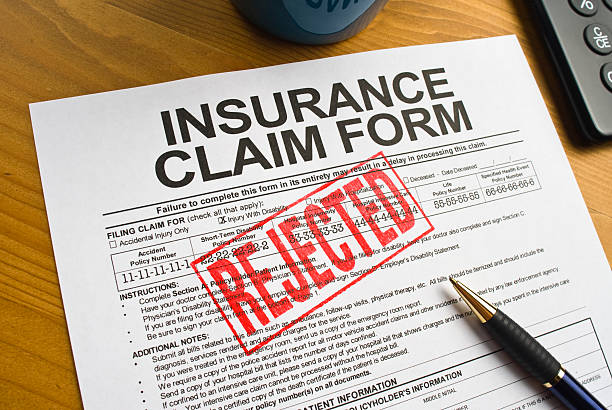
You pay your insurance charges on time because you agree that your coverage will guard you. But now and again, matters do not move as planned. Many people are greatly surprised once they discover their insurance claims were rejected. A rejected claim feels unfair when you need cash the most. You have to stay calm and act clever if this occurs to you.
Understanding the proper steps enables you to avoid the hassle and get what you deserve. Insurance corporations comply with strict regulations; however, mistakes manifest on both sides. Maybe you neglected an element, or the organization made a blunder while checking your insurance claim. Discover ways to take care of declaring rejection and keep away from it in the future.
Understand Why the Company Rejected Your Claim
Begin by reading the rejection letter carefully. The letter explains the reason for the rejection. Firms should provide obvious explanations for all denied claims. A few of the most common explanations for denial are a lack of documents, policy exclusion, late filing, or unpaid premiums. Tiny errors sometimes cause massive issues upon claim examination.
If you have no idea why, call your insurance agent right away. Ask for an explanation in simple terms. Take notes while talking so you will not forget all the important details. Understanding the exact reason helps you determine what to do next.
Check Your Policy Documents in Detail
After you learn the reason, read your policy documents again. Many people skip reading the fine print when they buy insurance. Your policy explains what your company covers and what it does not cover. Check if the reason matches your policy rules. Look for sections about exclusions, claim limits, and conditions. Maybe you claimed something that your plan does not cover. Maybe you filed the claim too late. Compare the rejection reason with your policy and find any possible mismatch. This step helps you prepare your case if you decide to challenge the rejection.
Collect All Related Documents Again
You must organize your papers before you appeal. Many claims fail because people submit incomplete documents. Gather your claim form, bills, reports, letters, and emails. Put everything in order and check if something is missing.
If you missed a report or paper earlier, get it now. Talk to your doctor, garage, hospital, or anyone linked to your claim. Clear and complete documents make your case stronger when you appeal. Make extra copies of every file for your records.
Talk to Your Insurance Company Again

Once you collect your papers, contact your insurance company. Ask for a senior officer or a claim manager. Explain your side calmly and show your papers. Many rejections get fixed at this stage when you share missing facts. Sometimes small misunderstandings or errors get cleared with a short talk.
Stay polite but firm when you talk to company staff. Do not get angry or yell at agents. Record your conversations with names, dates, and what they tell you. Good records help you if you need to take the case further.
Write a Formal Appeal if Needed
If your company does not fix the rejection after your talk, write a formal appeal. Many companies have an appeal process you must follow step by step. Write a clear letter explaining why you think the company made a mistake. Attach copies of your claim form, rejection letter, and all related papers.
Use simple words and stick to facts. Avoid long stories or angry words. Show proof if you have any papers that support your claim. Send your appeal by email or post with proof of delivery. Keep a copy for your records.
Get Help from a Third Party
If your appeal does not work, you can ask for help outside the company. Many countries have insurance ombudsman offices or regulators. These offices help customers settle claim disputes at no extra cost.
File a complaint with the ombudsman if you feel the company treated you unfairly. Follow their rules and submit all papers they ask for. Many cases get solved fast when the ombudsman steps in. Insurance companies do not want trouble with regulators, so they often settle valid claims quickly at this stage.
You can also get advice from a trusted lawyer if the amount is large. Many people hire insurance lawyers for large health, car, or property claims. A lawyer checks your papers and writes letters that show you mean business. Sometimes a strong legal notice pushes the company to pay fast.
Learn to Avoid Insurance Claim Rejections in the Future

One rejection can teach you big lessons for life. Use this experience to avoid future problems. Read your policy fully when you buy it next time. Have your agent clarify difficult bits in plain English.
Make sure to pay your premiums on time to prevent your policy from lapsing. It is necessary to keep all the medical records, repair receipts, and any other documents in a single folder. Report your loss as early as possible. Too many individuals lose money because they don’t file on time.
Double-check your insurance claim form before you mail it. Small misspellings, errors in numbers, and dates turn into huge headaches in the future. In case you are uncertain, make your agent go through your form before mailing. Good agents prevent you from making mistakes because they want satisfied customers.
Conclusion
A rejected claim feels stressful, but you must not panic or give up. Many insurance claims get approved when you share missing facts or fix small mistakes. Don’t worry, stay calm and do things the right way; see your rejection letter, check your policy, have all your papers, and have your firm to talk to you again. Write an appeal if needed and show clear proof to back your side. If that fails, use the help of an ombudsman or a trusted lawyer. Keep your records safe and follow all deadlines. Good planning helps you fight rejection and protect your money.
Insurance claim gives peace of mind when you know how to use it well. Be smart and careful with your documents and payments. This keeps you safe from insurance claim rejections in the future. Your policy works best when you stay informed and act on time every time.






